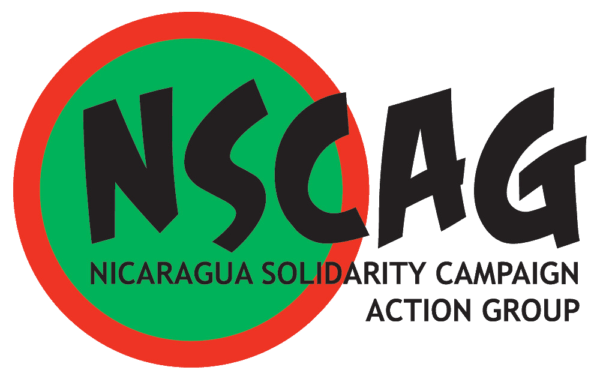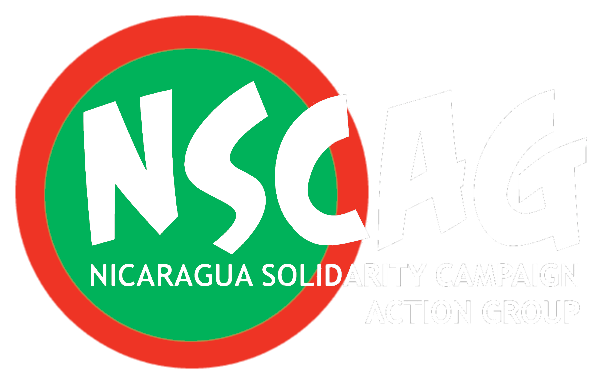Nicaragua Solidarity Campaign Action Group
14 March 2022
After the hurricanes, rebuilding lives and livelihoods
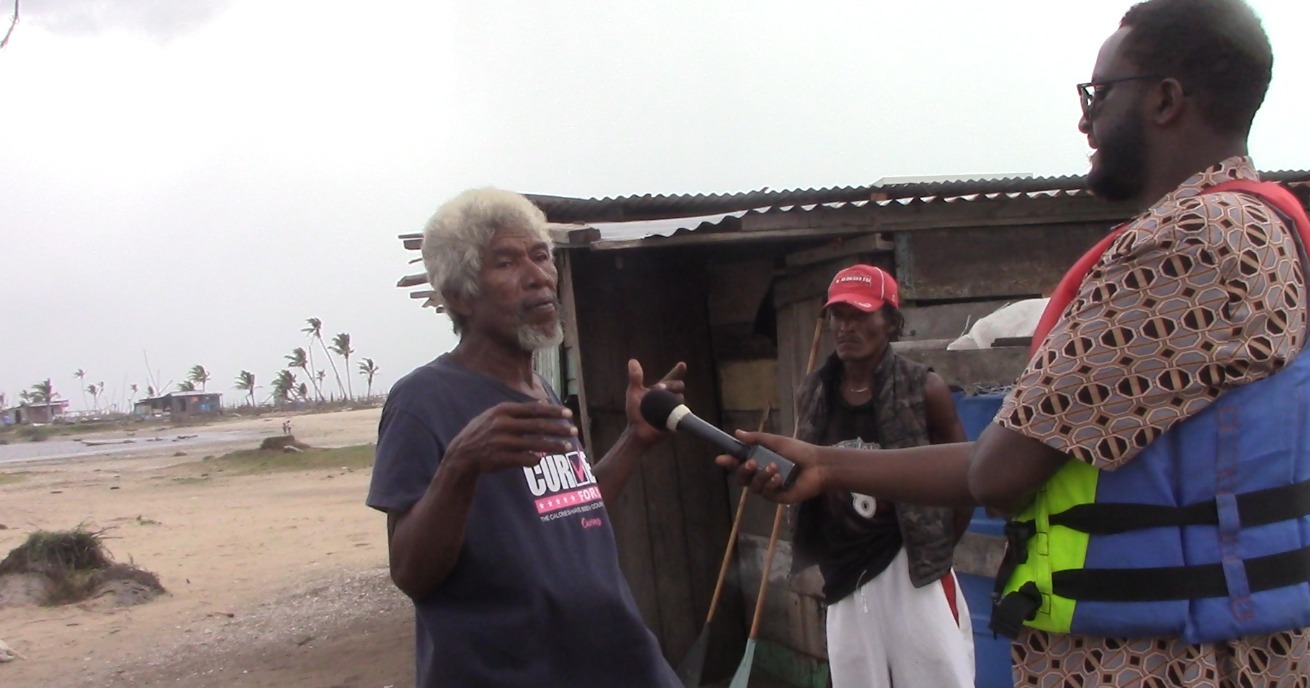
The remote coastal community of Haulover on the Caribbean Coast was struck by two catastrophic hurricanes in two weeks in November 2020. A year on, British film maker Ahmed Kaballo visited to find out what progress the community had made in rebuilding their lives and livelihoods.
Located in the Northern Caribbean Autonomous Region (RACN), Haulover is home to 1,600 Miskito, Afro-descendant and Mayagna people, most of whom make their living from subsistence farming and fishing.
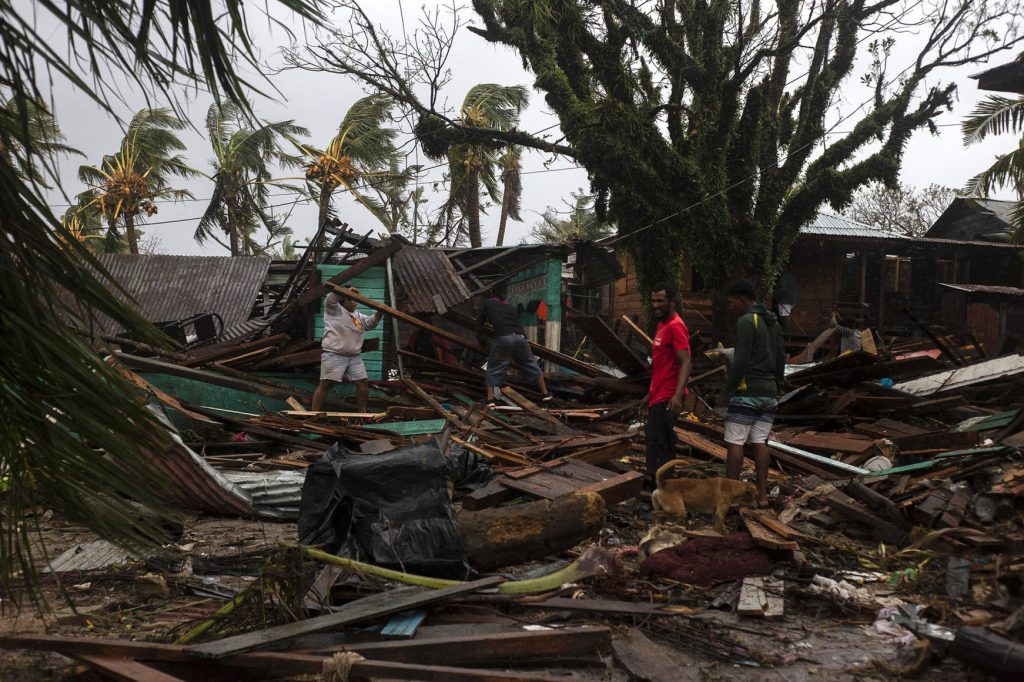
Many of the wooden houses, characteristic of the Caribbean region, were completely destroyed. Faced with winds in excess of 150mph those in exposed areas of the coast in places such as Haulover were particularly vulnerable.
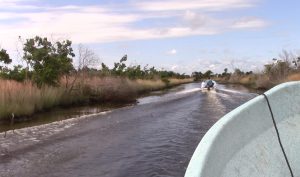
Haulover is situated 40km south of Bilwi (formerly Puerto Cabezas) the regional capital of the Northern Caribbean Coast Autonomous Region (RACN). With no road access, the journey to Haulover takes about 90 minutes by launch along inland waterways, avoiding the more dangerous route by sea.
As the hurricanes approached the Nicaragua government rapidly activated well integrated emergency procedures coordinated through the National System for the Prevention, Mitigation, and Attention to Disasters (SINAPRED). Like all communities on the coast, the entire population of Haulover was evacuated to higher ground. For the authorities the immediate priority was to save lives and provide emergency shelter, food and basic necessities.
Despite the scale of the catastrophy and vulnerability of the coastal communities not one single life was lost in this region.
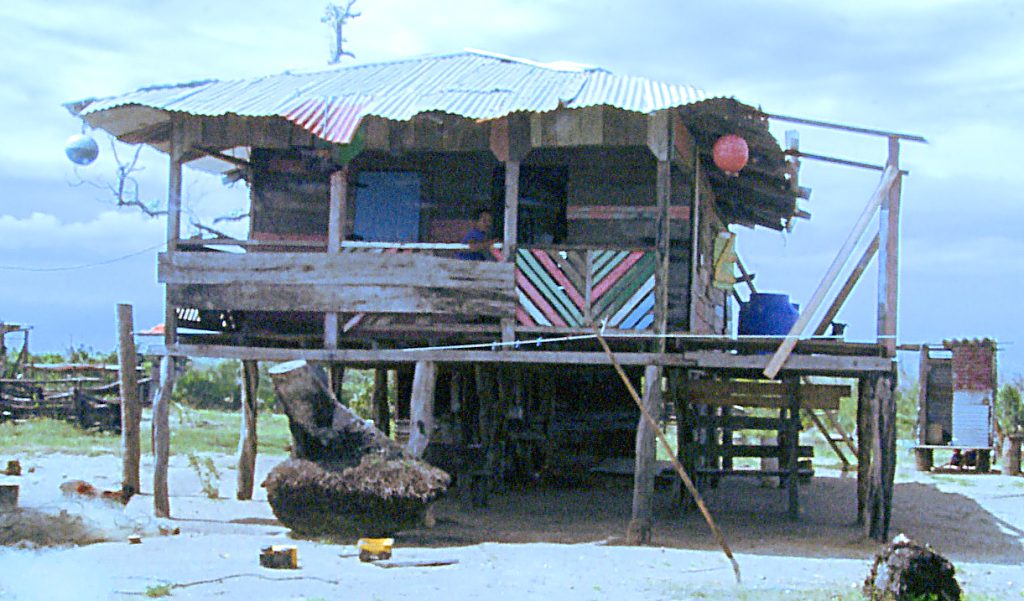
One year later after the total destruction of the whole community, film maker Ahmed Caballo found that families have rebuilt their houses using what they salvaged from the wreckage of their homes and new building materials provided through relief and reconstruction programmes coordinated by the local and national government.
Fishing has been reactivated with equipment and materials provided by the Nicaraguan Fisheries Institute (INPESCA) and support from Ministry of the Family, Communities, and Co-operatives (MEFCCA) and other government institutions.
The government’s support during the evacuation in 2020 as well as the substantial aid from the regional relief and reconstruction programmes were decisive in swaying electoral support for the Sandinista government in the November 2021 elections. Over 90% of the electorate in Haulover cast their vote for the FSLN.
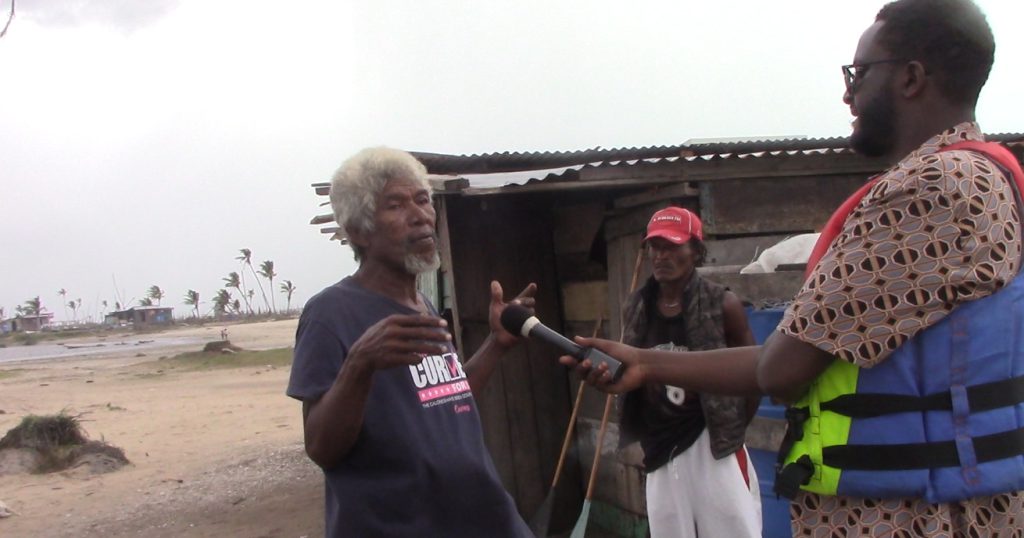
This was a major shift of allegiance in a community that has traditionally supported an indigenous political party called YATAMA.
Local fisherman and former Contra fighter Domingo Peralta explained that he ‘used to be with Yatama but the Yatama leadership did nothing for us, so I switched to the Frente Sandinista’.
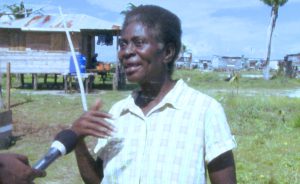 Among other people that Ahmed interviewed was an Afro-descendant Miskito speaking woman whose parents were originally from Mozambique. She has lived in Haulover most of her life.
Among other people that Ahmed interviewed was an Afro-descendant Miskito speaking woman whose parents were originally from Mozambique. She has lived in Haulover most of her life.
She explained that in addition to government help to rebuild her house, her family has been beneficiaries of MEFCCA’s support packages that included nets and a small boat from which she and her family make their living by fishing. She also noted the great importance of free health care and education for her family.
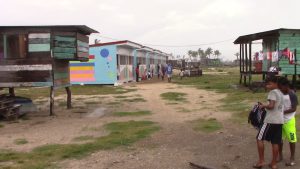
Back at school: prefabricated classrooms have replaced those flattened by the hurricanes.
The local municipal authority is working with the community on plans for a building programme to relocate every family in Haulover to more secure housing on firmer ground away from the sandy coastline.
Local municipality representative Ulda Castro explained that the programme aims “to provide each family with a dignified house together with a community infrastructure including the new health clinic [currently under construction].”
The clinic will have a pharmacy, reception and records areas, as well as spaces for medical consultations. Electricity will be provided by solar panels. The construction is providing much needed employment for dozens of local people.
